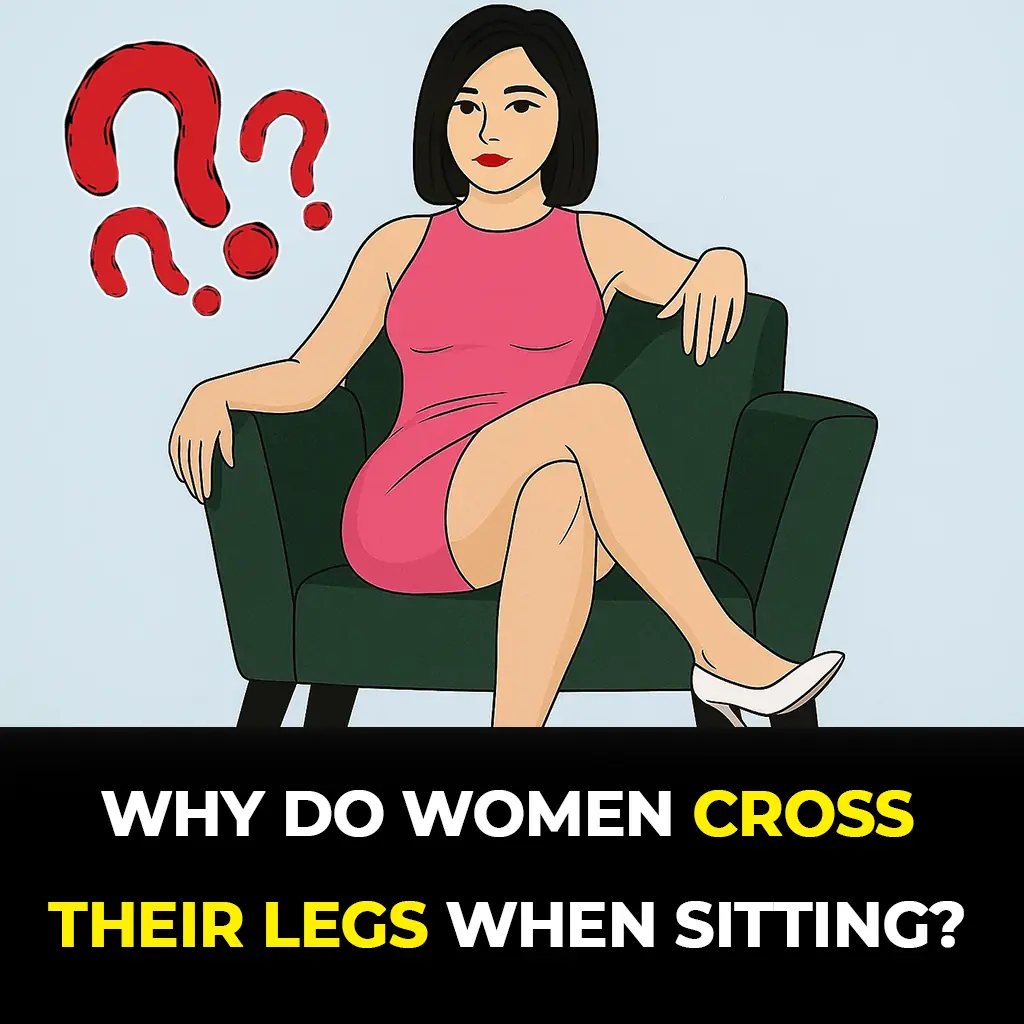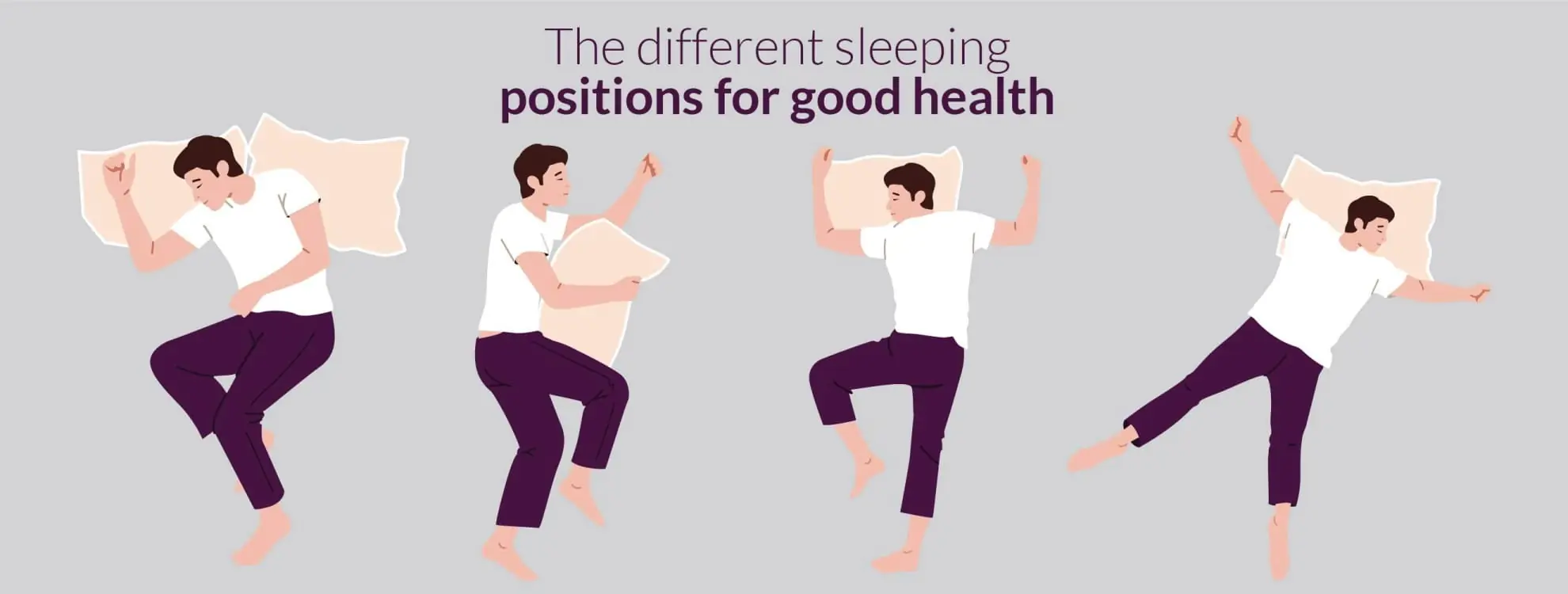
Here’s What It Really Means When A Man Turns His Back In Bed
 Many health professionals agree that getting adequate sleep is vital for maintaining overall health.
Many health professionals agree that getting adequate sleep is vital for maintaining overall health.
Sleeping for seven to nine hours each night helps the body recover and recharge, allowing it to function properly.
A lack of sleep increases the risk of serious health issues such as stroke, diabetes, heart attacks, bone degeneration, and even obesity, due to increased appetite.
Experts have also discussed the benefits of sleeping with a partner, which include improved temperature regulation, reduced stress, better wellbeing, and decreased insomnia.
Sharing a bed with a partner brings several advantages, such as enhanced coexistence, reduced insomnia, better temperature control, and stress relief. Studies have even linked sleeping positions to these benefits.
The significance of sleep posture and physical distance when sharing a bed with a partner was highlighted in research conducted by American psychologist Richard Wiseman from the University of Hertfordshire in the UK.
According to the study, 42% of couples sleep with their backs to each other, 34% maintain some form of physical contact, and 31% stay on the same side of the bed throughout the night.
Interestingly, couples who sleep closer to each other report higher levels of satisfaction and contentment. Sleeping on the same side of the bed is often seen as an indication of a strong emotional connection, even if the couple does not touch physically.
In contrast, if a partner turns their back on you while sleeping, it might suggest they respect your independence without compromising the emotional bond between you. However, it’s important to note that this alone is not a definitive indicator of a relationship's health, as other factors such as sleeping habits also influence relationship dynamics.
The study found that 42% of couples sleep with their backs to each other, 34% stay in contact, and 31% sleep on the same side of the bed the entire night.
Psychologically, even the smallest physical movements during sleep can reveal feelings and emotions. Although often overlooked, sleeping positions can provide insights into a relationship's status. However, it’s essential not to make hasty judgments, as various factors like health conditions or long-established habits from childhood can affect how individuals sleep.
Experts in relationships and psychology have explored the possible meanings behind a partner turning their back on you while you sleep.
The Relationship Quality Linked to Sleeping Positions
At the 2014 Edinburgh International Science Festival, a team of researchers from the University of Hertfordshire explored whether sleeping positions could serve as indicators of relationship health.
Research: What Does Sleeping on Your Back Mean?
After analyzing the data, the researchers concluded that when couples sleep on their backs or refrain from frequent physical contact, it often signifies a high level of comfort and trust.
This sleeping posture suggests that both partners value their personal space in the relationship while having full confidence in the bond they share.
According to the study, while physical touch is important, it does not necessarily dictate the happiness or satisfaction within a relationship.
The findings indicate that some couples may prefer sleeping positions that don’t involve direct physical contact but still maintain a strong emotional connection, demonstrating mutual love and trust.
News in the same category


Break-up coach reveals three clear signs that mean a relationship is over

“Meet K2-18b: The Distant Ocean World That Could Host Alien Life”

Scientists Confirm Brain’s ‘Life-Flash’ Surge Just Before Death

Could Psilocybin Be the Secret To Living Longer? Scientists Think So.

You Should Never Ignore These 9 Things Your Fingernails Reveal About Your Health

10 Warning Signs Your Kidneys May Be in Serious Danger
Your kidneys quietly work around the clock to keep your body in balance, but when they start to fail, the symptoms can be subtle and easily overlooked. Spotting these early warning signs could save your health—and even your life.

What You See First In This Weird Optical Illusion Reveals What Kind Of Lover You Are
Optical illusions can do more than just play tricks on your mind — they can reveal hidden aspects of your personality, including how you express love. In this unique test, the first image you notice will uncover your deepest romantic traits and the way

Beekeeper Sets Bees Loose on Police That Pulled Him Over for Traffic Stop

The ‘World’s D3adliest Food’ K!lls 200 People Annually — Yet 500 Million Still Can’t Resist It
Every year, this claims over 200 lives worldwide, yet nearly half a billion people still rely on it as a daily food source. Experts warn that without proper preparation, this staple crop can turn d:eadly due to its natural cyanide content.

The Hidden Meaning Behind Women's Leg-crossing — It’s More Than Just Comfort
The Hidden Meaning Behind Leg-Crossing — Body Language Secrets, Health Risks, and What It Really Says About You.

Say Goodbye to Fillings Soon? Scientists Just Grew Real Human Teeth In a Lab That Could Replace Fillings Forever
What if your body could suddenly remember an ability it lost thousands of years ago - the power to grow an entirely new tooth?

The Secret Behind the Small Metal Bump on Scissors Everyone Missed
People Are Stunned To Discover The Real Purpose of the Small Metal Bump Between Scissor Handles — And It’s More Useful Than You Think.

The Chilling Truth About Why No Human Remains Were Found in the Titanic Wreck
More than 110 years after the Titanic sank, scientists have revealed the chilling reason no human remains were ever found in its wreckage. Resting 12,000 feet below the Atlantic, the site tells a silent story of how nature claimed the victims in its own w

9 Chilling Stories of Third Man Syndrome: When an Unseen Presence Aided Survival in Disasters

I Was Shamed for Being a Single Mom at My Sister’s Baby Shower — Then My 9-Year-Old Son Silenced the Room with a Letter

9-Year-Old Boy Whispered “Daddy, I’m so tired!” and Didn’t Wake Up Again

What Is the Shark Fin on Cars?
News Post

The 4 Must-Have and Inexpensive Fruits for Older Adults Who Want to Live Long!

The best fruits to unclog and clean your blood vessels

Best Sleeping Positions to Prevent Neck Pain, Reflux, and Keep Your Heart Healthy

Simple Techniques to Boost Your Lymph System and Remove Toxins

5 Common Habits That Quietly Damage Your Knees

Benefits of Walking: Why Walking is One of the Best Forms of Exercise

The Simpsons fans devastated as show 'kills off' one of the main characters for first time ever

Doctor gives 'deeply concerning' warning after man injected himself with sperm to 'cure back pain'

Mom, 33, issues warning after noticing ‘mosquito bite’ that turned out to be much more sinister

Study reveals average penis size across US states and exposes who is exaggerating

NASA releases closest-ever images to the sun and everyone is asking the same thing

Break-up coach reveals three clear signs that mean a relationship is over

“Meet K2-18b: The Distant Ocean World That Could Host Alien Life”

Secret CIA Documents Declare That The Ark Of The Covenant Is Real, And Its Location Is Known

Neuroscience Says: Listening to This Song Reduces Anxiety by Up to 65%. Hear It Yourself

Study Suggests Key Link That Could Help Explain Autism Development

Scientists Confirm Brain’s ‘Life-Flash’ Surge Just Before Death

Scientists Warn China-Identified Bat Virus Just One Mutation Away From Sparking Global Pandemic
